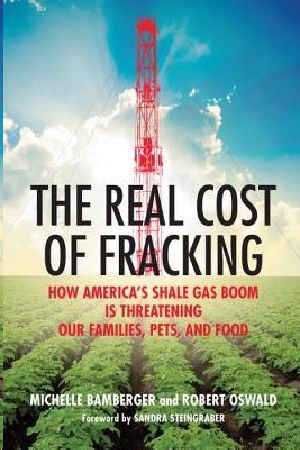The Real Cost of Fracking

- Authors
- Bamberger, Michelle & Oswald, Robert
- Publisher
- Beacon Press
- Tags
- medical , science , toxicology , nature , environmental policy , political science , public policy , environmental conservation & protection
- ISBN
- 9780807084946
- Date
- 2014-08-05T00:00:00+00:00
- Size
- 0.31 MB
- Lang
- en
**A pharmacologist and a veterinarian pull back the curtain on the human and animal health effects of hydraulic fracturing, or “fracking”**
** **
Across the country, fracking—the extraction of natural gas by hydraulic fracturing—is being touted as the nation’s answer to energy independence and a fix for a flagging economy. Drilling companies assure us that the process is safe, politicians push through drilling legislation without a serious public-health debate, and those who speak out are marginalized, their silence purchased by gas companies and their warnings about the dangers of fracking stifled.
*The Real Cost of Fracking* pulls back the curtain on how this toxic process endangers the environment and harms people, pets, and livestock. Michelle Bamberger, a veterinarian, and Robert Oswald, a pharmacologist, combine their expertise to show how contamination at drilling sites translates into ill health and heartbreak for families and their animals. By giving voice to the people at ground zero of the fracking debate, the authors vividly illustrate the consequences of fracking and issue an urgent warning to all of us: fracking poses a dire threat to the air we breathe, the water we drink, and even our food supply.
Bamberger and Oswald reveal the harrowing experiences of small farmers who have lost their animals, their livelihoods, and their peace of mind, and of rural families whose property values have plummeted as their towns have been invaded by drillers. At the same time, these stories give us hope, as people band together to help one another and courageously fight to reclaim their communities.
The debate over fracking speaks to a core dilemma of contemporary life: we require energy to live with modern conveniences, but what degree of environmental degradation, health risks, and threats to our food supply are we willing to accept to obtain that energy? As these stories demonstrate, the stakes couldn’t be higher, and this is an issue that none of us can afford to ignore.
*From the Hardcover edition.*